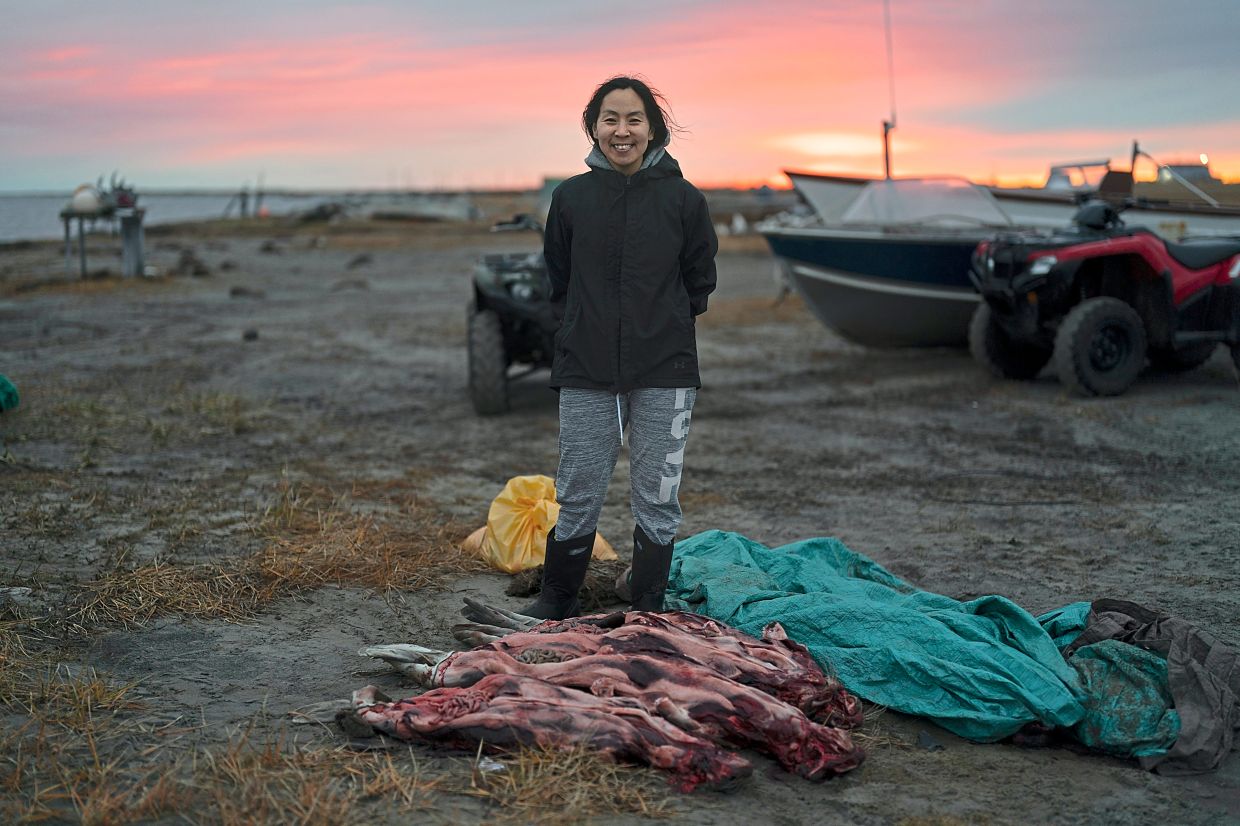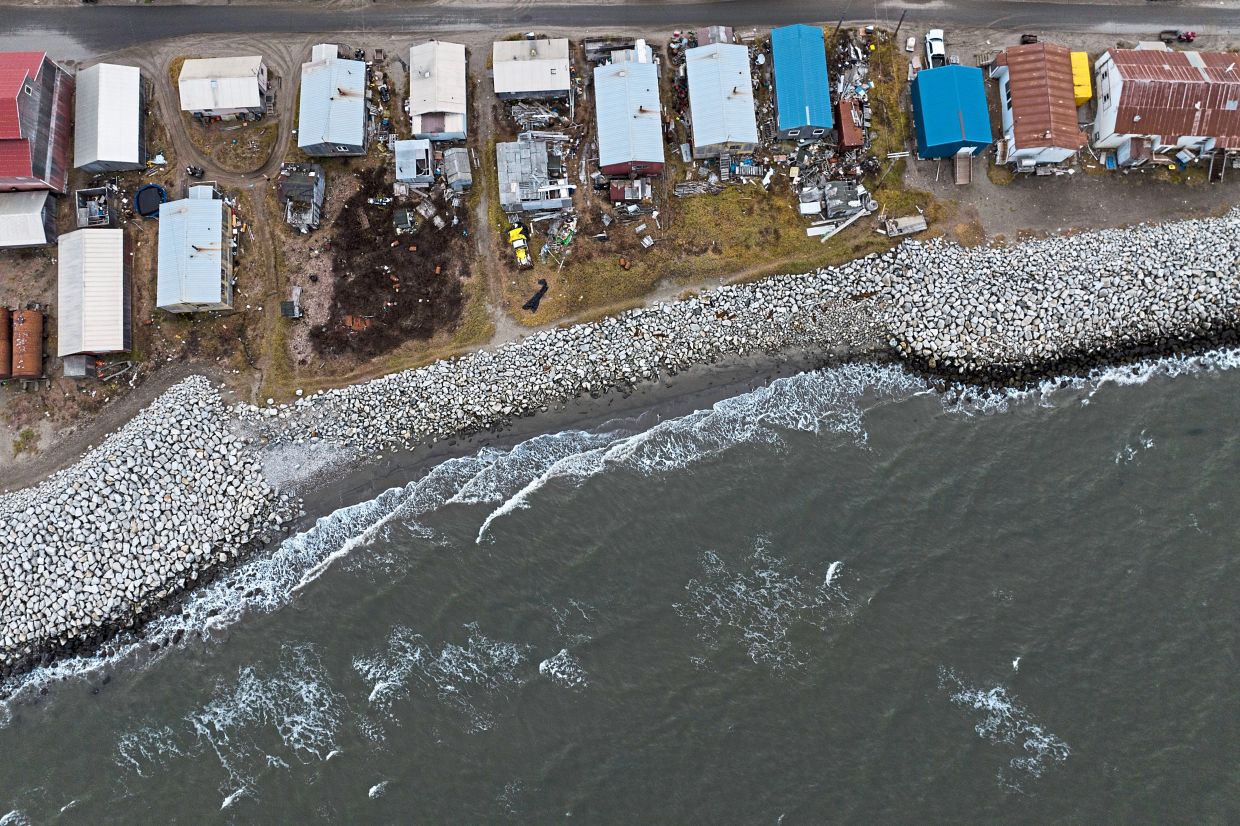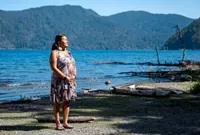Helen Kakoona, 28, with skinned seals in front of her home in Shishmaref, Alaska, on Oct 3, against the setting sun. ‘No other place feels like home but here,’ she says. Photo: AP
“Home sweet home.” That’s how Helen Kakoona calls her Alaska Native village of Shishmaref when asked what it means to live on a remote barrier island near the Arctic Circle.
Her home and the traditional lifestyle kept for thousands of years is in peril, vulnerable to the effects of climate change with rising sea levels, erosion and the loss of protective sea ice.
Get 30% off with our ads free Premium Plan!
















